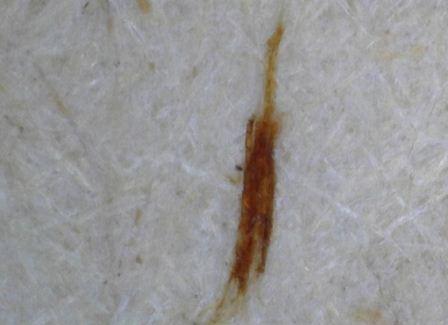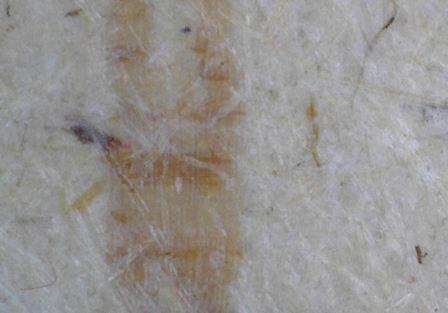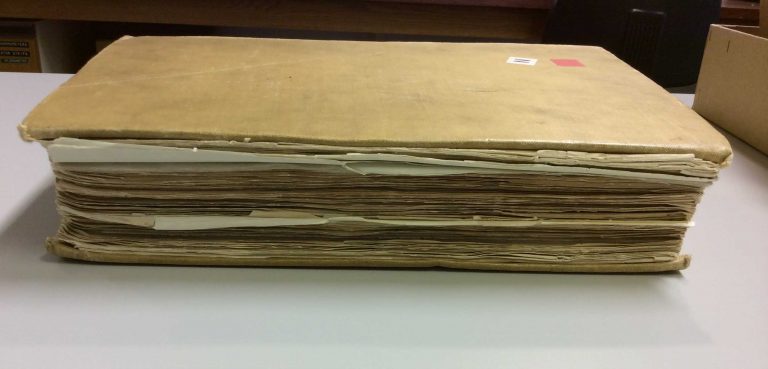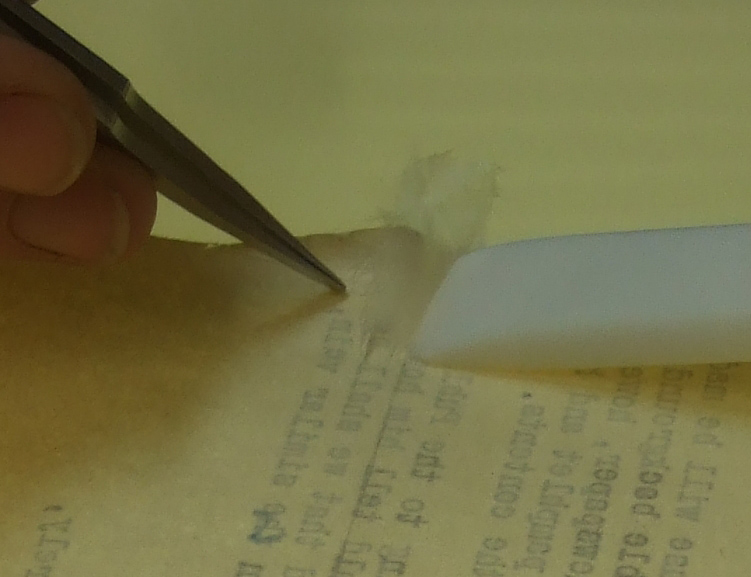Among the vast collections held here at The National Archives, FO 371 is one of the most requested series (79,366 requests since 2013!) FO 371 holds almost 300,000 volumes and files of early to mid-20th century Foreign Office correspondence. The volumes in FO 371 are bound sets of once loose papers. This explains the great variety of items that are included. When you look at FO 371 you may have noticed different papers (ranging in quality), newspaper clippings and photos.
Many papers in the FO 371 series deteriorate because of the inherently poor quality wood pulp used in making the paper. Over time, due to the acidity of the material, the papers discolour and turn yellow. When paper degrades it becomes really fragile and it can easily rip or tear just from normal handling.

Wood pulp fibres in paper (67.9 x magnifications 0.5mm)

Wood pulp fibres in paper (67.9 x magnifications 0.5mm)
As FO 371 is popular, the volumes get a lot of handling. The rips and tears can be so major that there is the risk of losing information – from a single letter to whole pages coming loose.
When tears in a document occur through text, specialist staff in Collection Care repair it. This is often done using Japanese tissue paper and wheat starch paste – a bit like getting stitches in the emergency room. Japanese tissue has incredibly long and strong paper fibres which work well to form strong bonds with the original paper. Unlike sellotape, this conservation repair method is long lasting, does not discolour and is reversible. Repairs are usually done on the back of the document, or in an area with less text, so as not to obscure content.
Collection Care works to keep our records accessible through both trying to minimise damage and repairing that can’t be avoided. You can help by following our handling advice and highlighting to Collection Care documents where you think the contents are at risk of loss from damage either in FO 371 or any other series. Reporting the document does not mean you will no longer be able to access it, it just enables us to carry out any treatment that may be needed to reduce the risk of further loss and damage. Keeping the collection accessible to readers is our priority!

